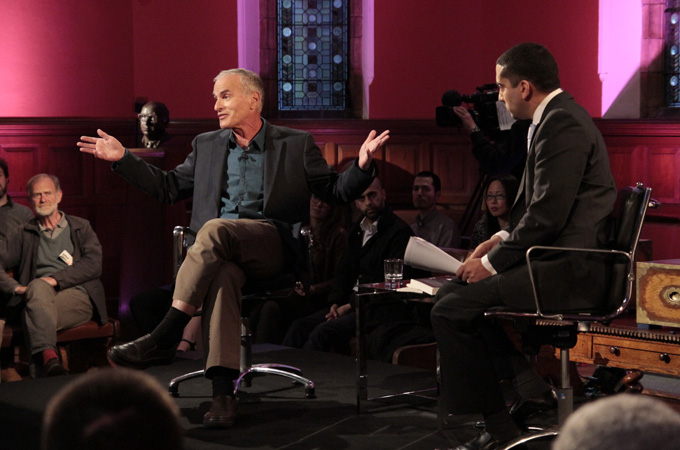In an extremely interesting episode of Al Jazeera's Head to Head program at the end of last year (Watch it here), Norman Finkelstein took on a panel of mostly One-State Solution advocates over his opposition to the BDS movement. Although Finkelstein doesn't himself make this distinction clearly, it seems that he makes two separate arguments. The first is that BDS opposes international law by tacitly opposing Israel's right to self-determination as an internationally-recognized state. The second is that BDS risks de-legitimizing the Palestinian cause by demanding a solution that is too far from the mainstream of international opinion.
In making the first claim, Finkelstein is clearly wrong. The BDS makes three demands, Israel's withdrawal from all territory occupied in 1967, the granting of full and effective equality to Israel's Arab population, and the "right of return" for the Arab refugees of 1948,as demanded by UN resolutions on the status of refugees. The problem for Finkelstein is that all three of these demands are clearly in line with international law and UN resolutions. The "right of return" has been supported in explicit connection with the Palestinian issue by past resolutions, and the Arabs' right to equality is covered by the UN Declaration of Human Rights. Finkelstein, however, argues that these three demands (particularly the right of return) mean the end of Israel as a Jewish state. This is likely true, given that the full implementation of the right of return would lead to a majority-Arab Israel. However, this is no problem under international law. The fact that Israel is a legally recognized entity within its 1967 borders does not give Israel the right to violate international law to maintain a certain ethnic character. What international law recognizes is not Jewish Israel or majority-Jewish Israel, but simply Israel. In the same way, Apartheid South Africa's recognition as a state in no way implied a right for the country to exist as a specifically white state. The difference between Apartheid and post-Apartheid South Africa is just as great as the difference between Jewish and post-Jewish Israel would be. In neither case does this difference imply a violation of the state's right to exist under international law.
However, the legality of the One-State Solution is a different matter from its feasibility. On this question, Finkelstein is on much firmer ground. Whenever Finkelstein is challenged by One-State Solution advocates, he asks them to name one country that has come out in support of this solution. In repeated UN votes, virtually the entire world has lined up behind the Two-State Solution, but not one country has supported the One-State Solution. One-State advocates have argued that world opinion can change, which is true, but the question is how long this will take. There are no guarantees, and in the meantime Palestine continues to be ground down, and its people continue to suffer. Politics is the art of the possible, and, as is often the case, there is a serious risk here that the best may become the enemy of the good.
One more question that needs to be addressed in this connection is the situation of the Israeli Arabs. One-State advocates have expressed concern that a Two-State Solution may lead to pressure on the Israeli Arabs to emigrate to Palestine and increased discrimination. In the short-term, I think this is likely true. However, no one can force the Israeli Arabs to leave if they don't want to. An international community that had been mobilized enough to force a Two-State Solution would never stand by while the Israeli Arabs were ethnically cleansed. All the possibilities for civil rights advocacy would still be there, and, over the long term, the defusing of the tensions caused by the occupation might even create conditions more conducive to the achievement of Arab equality in Israel. But first things first. The occupation needs to end.

No comments:
Post a Comment